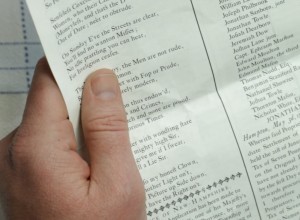The Next Episode — Summer of 1770
 Stories are about characters in conflict, not what Nabokov (I think) called “topical trash.” You can’t just track down an incident from history, or a trend, or a famous person and lock them all in a jar and claim your “narrative bottle” now has weight. That will earn you a sympathy nod, but it usually injures the tale. Take a great movie like “Mr. Holland’s Opus.” There was a marvelously drawn character, having a real life struggle, and then mid-way through our hero’s travail, the death of John Lennon is introduced in a way that took us away from the very interesting story of Mr. Holland himself. It’s not that a real person can’t have real life attachment to celebrities, but for the story itself it’s a no-win situation. If the celebrity is a light-weight, it makes our hero look cheap, and even if our celebrity is a three time Nobel prize winner, it makes the author look as though he’s borrowing the weight of a “great man” to fortify his character. It’s not a rule that can’t be broken, but the connection to the famous has to be so unusual it keeps our attention where it should be — on our characters themselves. Abraham Lincoln should be more interested in our character, in other words, than our character is interested in Lincoln.
Stories are about characters in conflict, not what Nabokov (I think) called “topical trash.” You can’t just track down an incident from history, or a trend, or a famous person and lock them all in a jar and claim your “narrative bottle” now has weight. That will earn you a sympathy nod, but it usually injures the tale. Take a great movie like “Mr. Holland’s Opus.” There was a marvelously drawn character, having a real life struggle, and then mid-way through our hero’s travail, the death of John Lennon is introduced in a way that took us away from the very interesting story of Mr. Holland himself. It’s not that a real person can’t have real life attachment to celebrities, but for the story itself it’s a no-win situation. If the celebrity is a light-weight, it makes our hero look cheap, and even if our celebrity is a three time Nobel prize winner, it makes the author look as though he’s borrowing the weight of a “great man” to fortify his character. It’s not a rule that can’t be broken, but the connection to the famous has to be so unusual it keeps our attention where it should be — on our characters themselves. Abraham Lincoln should be more interested in our character, in other words, than our character is interested in Lincoln.
That’s the primary reason why I chose not to make Courage the story of the founding fathers, or the great luminaries of the 18th century for that matter. In the first place, it isn’t fair. When we’re trying to paint an intimate, sit-by-the-fire picture of someone’s life, which inevitably include some of their vices, as well as their virtues, it isn’t really fair to paint that detailed a picture of facts that can never be verified, this side of eternity. As much as I loved HBO’s “John Adams,” did we really need to follow John and Abigail into their Parisian boudoir? Was it necessary to depict the affection-starved 2nd President of the United States as a grasping, wife-jostling, love-klutz? Complete with his breeches down around his ankles?
I know that’s HBO’s formula, but sometimes fiction is more truthful than biography told with reckless abandon.
Having said all of that, our aim is still to root these characters in and around real events.
So what do we know about the summer of 1770 in New England? We know that New Hampshire was late to support the non-importation agreement and that the Boston Massacre had the effect of making New Hampshiremen feel guilty about their previous apathy. We know that the majority of Townshend duties had been repealed. We know that the Boston massacre soldiers were awaiting trial. We also know some of the “small stuff,” the journal news of citizens great and small:
April 1 – June 30, 1770
The Reverend Ezra Stiles, Pastor of the 2nd Congregationalist Church of Newport, Rhode Island:
- He has his picture taken in miniature by Mr. Samuel King
- He hosts a spinning bee in his home in support of the non-importation agreement
- He travels to Connecticut
- He weighs in on controversies of Church discipline, rights of Dartmouth Founder to continue as pastor until made president of the College
Samuel Adams —
- He chides John Hancock for offering resignation
- He Writes a memorial on behalf of slain citizens of Boston
John Rowe, Boston Merchant —
- March 23 went to a concert (“The Beggars Opera) 100 in attendance
- March 28 Goddaughter dies
- April 2 — attended funeral of friend
- Enjoyed tender “buffalo stakes” in Brackett’s tavern on Boston neck
- “Our Hannah” dies
- A customs officer “Ebeneezer Richardson” goes on trial for shooting a rioter.
- Reverend Walter’s Child buried. George Erving’s wife died.
- May 10 — had lunch with John Hancock
- May 17 — observed that the 29th regiment marched from the Castle to Providence (RI?)
- May 23 — visited a “wild place” Mashby — an “Indian Town” — fished, went to Crocker’s Tavern, complimented tavern keeper’s daughters for being “clever and genteel.”
- May 24 visited Plymouth monument — took a nap in an Indian wigwam, caught 10 trout.
- May 29 — celebration of King’s Restoration (Charles II?) An Ox was roasted whole on the common.
- June 4 — went to an artillery election, toasted his majesty’s health.
- June 14 — visited Lt. Governor Hutchinson at his seat in Milton.
More “small stuff” coming..
